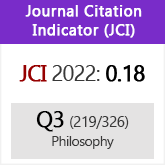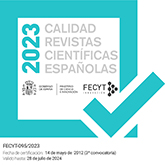Culpa y responsabilidad como vertientes de la conciencia moral
DOI:
https://doi.org/10.3989/isegoria.2003.i29.487Abstract
If I am not mistaken, our cultural baggage leads us almost automatically to associate guilt with a religious concept. To be more precise this has Judean-Christian roots. At the same time it also tends to lead to the identification of responsibility with strictly legal matters. Guilt is presented in close association with religion or, at most, with psychoanalysis, given that responsibility is usually restricted to criminal law or is associated in terms of protocol with polities. Nevertheless, although the words «guilt» and «responsibility » do not occur very often in dictionaries of ethics, they are key concepts in moral thought. My purpose here is to present them as dimensions or complementary aspects of our moral sense. It is of course possible for anyone to accept a specific responsibility without feeling guilty while, on the other hand, some people will always prefer to wallow in feelings of guilt without feeling responsible for the cause of the same. However, it is correct for both notions to work together with one accord. Guilt should therefore be a symptom of responsibility, while attending to our own responsibilities should be enough to ensure a complete lack of personal guilt.
Downloads
Download data is not yet available.
Downloads
Published
2003-12-30
How to Cite
Aramayo, R. R. (2003). Culpa y responsabilidad como vertientes de la conciencia moral. Isegoría, (29), 15·34. https://doi.org/10.3989/isegoria.2003.i29.487
Issue
Section
Articles
License
Copyright (c) 2003 Consejo Superior de Investigaciones Científicas (CSIC)

This work is licensed under a Creative Commons Attribution 4.0 International License.
© CSIC. Manuscripts published in both the printed and online versions of this Journal are the property of Consejo Superior de Investigaciones Científicas, and quoting this source is a requirement for any partial or full reproduction.All contents of this electronic edition, except where otherwise noted, are distributed under a “Creative Commons Attribution 4.0 International” (CC BY 4.0) License. You may read here the basic information and the legal text of the license. The indication of the CC BY 4.0 License must be expressly stated in this way when necessary.
Self-archiving in repositories, personal webpages or similar, of any version other than the published by the Editor, is not allowed.














